|
April 19, 2021 - No. 30
Widescale Opposition to Alberta Government's
Retrogressive Science Curriculum
Main Goal of Science Curriculum
Should Be Scientific Literacy
- Dr. Dougal MacDonald -
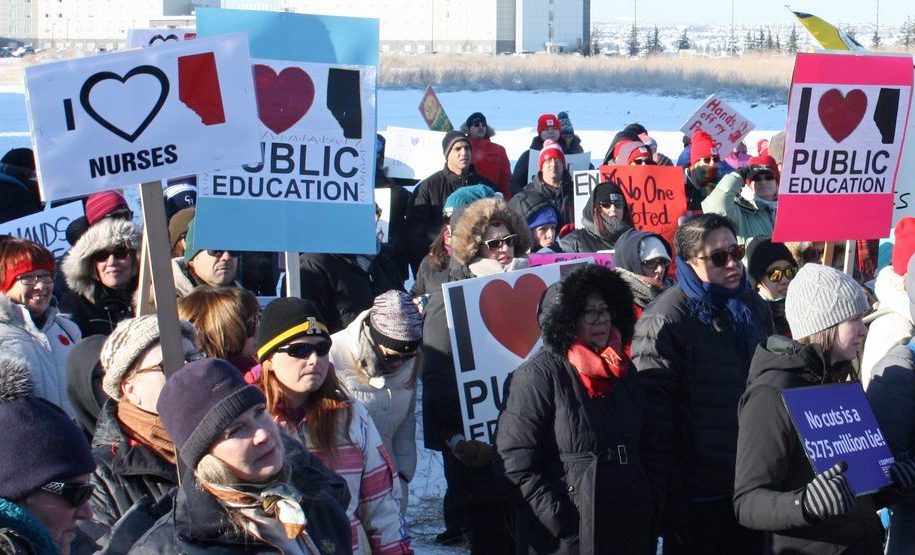
• Widescale Opposition to Kenney Government's Draft Science Curriculum
Quebec
Teachers Hold One-Day Strike
• Attempts to
Secure a Negotiated Collective Agreement
Widescale Opposition to Alberta Government's
Retrogressive Science Curriculum
- Dr. Dougal MacDonald -
Alberta's ruling United Conservative Party
(UCP) recently released
a draft of a proposed new Alberta elementary
school curriculum.
Educators and many others are heavily
criticizing the draft for its
inappropriate content, its reactionary political
bias, the fact that
some of it was plagiarized from a U.S. site, and
for numerous other
good
reasons. Over 25 (out of 61) Alberta school
boards, including Edmonton
and Calgary, are refusing to pilot it. On April
15, the Alberta
Teachers' Association called for the UCP to stop
work on the draft
until a rewrite and review can take place.
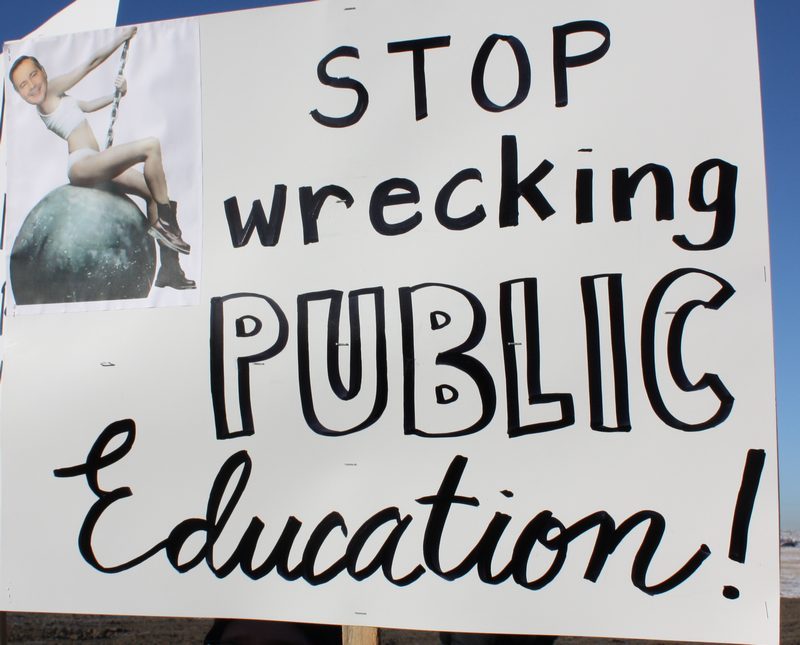 Certainly, the
UCP draft is a major fail and deserves all the
criticism it is receiving. At the same time, in
the current era,
solutions are what is needed. Thus, the key
question is, "What should
the curriculum be?" Integral to this is the
question "What should the
aim of the curriculum be?" That is a very broad
question indeed so as a
science
educator of long experience, I am limiting
myself here to discussing
what might be the aim of the science curriculum. Certainly, the
UCP draft is a major fail and deserves all the
criticism it is receiving. At the same time, in
the current era,
solutions are what is needed. Thus, the key
question is, "What should
the curriculum be?" Integral to this is the
question "What should the
aim of the curriculum be?" That is a very broad
question indeed so as a
science
educator of long experience, I am limiting
myself here to discussing
what might be the aim of the science curriculum.
The current pandemic has once again emphasized
the importance of
scientific literacy. Most people are relying on
the expertise of
experienced scientists such as infectious
disease specialists as their
source of reliable knowledge about COVID-19, how
it spreads, how
dangerous it is, what to do about it, and so on.
This approach is
sometimes
sarcastically contrasted to the unsavoury option
of relying on the
social media rantings of some random crank.
If scientific literacy is the main goal of
science education then
what is it? At one time, it simply meant being
in possession of a large
number of established scientific facts, e.g.,
knowing that viruses are
living organisms that cannot reproduce without a
host cell. This older
conception limited the acquisition of scientific
literacy to
accumulating
somewhat disjointed bits of scientific
knowledge, similar to preparing
for a science-oriented quiz show.
More recently, scientific literacy is being
more broadly defined. In
this approach, the key is to link science with
the student's (and
teacher's) lifeworld. There is much more
emphasis on the importance of
an understanding of science by those who will
not pursue
science-related careers. The basic aim could be
summed up as shaping
informed,
socially responsible, competent citizens who can
deal more effectively
with the science-related social problems that
face us all, e.g., the
pandemic.
What might be some of the attributes of such a
scientifically
literate person, fostered over a period of time?
They might include the
following, applied of course to specific areas
of science content:
bases conclusions on evidence, distinguishes
experts from the
uninformed, is aware of how science is done and
how its findings are
validated,
distinguishes science from pseudoscience, can
analyze and process
information, recognizes that scientific
knowledge is reliable but can
change, can distinguish knowledge from opinion,
and so on.
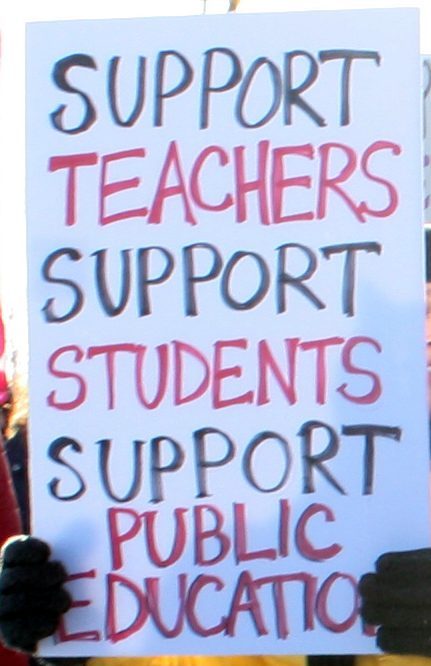 Certainly,
scientific literacy still includes understanding
scientific knowledge. It is quite impossible to
address a
science-related social issue without having the
relevant knowledge. For
example, dealing with the issue of the efficacy
of wearing masks to
limit virus transmission clearly requires some
knowledge of how viruses
travel. At the same
time, acquiring the scientific knowledge alone
is not enough. Certainly,
scientific literacy still includes understanding
scientific knowledge. It is quite impossible to
address a
science-related social issue without having the
relevant knowledge. For
example, dealing with the issue of the efficacy
of wearing masks to
limit virus transmission clearly requires some
knowledge of how viruses
travel. At the same
time, acquiring the scientific knowledge alone
is not enough.
Besides scientific knowledge, the other very
important aspect of
scientific literacy is knowing about the
distinguishing characteristics
of science itself, a topic often called "the
nature of science,"
particularly how science is "done." This is
because accepted scientific
knowledge is ultimately based on evidence from
reliable scientific
studies. Those
studies must stand up to critical scrutiny,
e.g., regarding
methodology, controlling of variables,
conclusions drawn, and so on.
Further, scientific claims must be evaluated
both in terms of the
validity of their content and their relevance
(or not) to the issue.
Also, while students need to learn to exercise
some intellectual
independence in evaluating scientific claims, it
is difficult to avoid
at least some dependence on the views of
scientific experts, even when
said experts
might disagree. Inquiring into what those
reasons might be is another
aspect of scientific literacy.
While reliable scientific knowledge comes
ultimately from scientific
research studies, most exposure to such
knowledge comes through popular
media rather than scientific publications.
Popular media can be
unreliable, as anyone familiar with social media
knows, so students
must be both scientifically literate and media
literate. Also, everyone
must take into consideration their own
confirmation bias which is the
tendency to favour information confirming one's
already-held beliefs.
Focusing science curriculum on scientific
literacy provides an
overarching purpose and framework. It links
science to students'
lifeworld and is in harmony with the current
ethos and practice of
science. For a long time, the approach to
science curriculum
improvement has been simply to update the
subject matter of the
traditional scientific
disciplines. Instead, what is needed is to
create a curriculum that
focuses on the utilization of science for the
common good, on a science
that is not just for a select few but rather for
the benefit of all of
society.

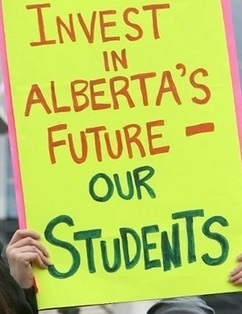 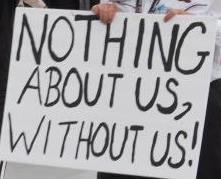
The
demand that the people of Alberta have a say in curriculum
development has gone viral. At last count, more than 38,600 Albertans
have joined the group Albertans Reject Curriculum Draft. The draft
curriculum has been denounced by Indigenous peoples, Francophone
organizations, and tens of thousands of people. People are finding ways
to get petitions signed despite the restrictions imposed by COVID-19
(the Alberta government does not accept online petitions), and speaking
out with thoughtful and incisive comments. Many people are saying
they will stand behind teachers who refuse to do harm to their students
by teaching this curriculum. The Alberta Teachers' Association
(ATA) is calling for the Government of Alberta to stop all work on the
piloting and implementation of the draft curriculum until an
independent, open and full review and rewrite can occur.
The
Association published full-page ads in daily newspapers across Alberta
on April 16 to issue the call for a moratorium and to show support for
school boards and teachers that decide not to participate in piloting.
The ATA said: "Alberta's students and teachers require an
appropriate and workable
curriculum. The government is being told
loudly and clearly that this
curriculum is unacceptable. We now need the
government to announce a
stop to their implementation plans and to
spell out a new way
forward," said Jason Schilling, ATA president.
ATA president Jason Schilling says the
Association supports school
boards that have decided not to pilot this
draft curriculum, and he
calls on all school authorities to refrain
from directing their
teachers to participate in piloting.
He stated, "Teachers who believe this
curriculum is unsound and
potentially damaging to student learning have
the professional
responsibility and moral right to refuse to
participate in voluntary
piloting. The government and school boards
must respect the decision of
individual teachers to not participate in
piloting."
Although the teaching profession is
frustrated by being left out of
the curriculum development process, Schilling
says teachers are more
than willing to assist the government with a
rewrite that reflects
their extensive expertise and knowledge.
"We are committed to supporting the
development of a high-quality
curriculum, and the ATA is prepared to work
constructively in
partnership with the Government of Alberta
toward that end. It is the
only workable path forward. We just need to be
invited," Schilling emphasized.
The call follows the release of preliminary
survey results showing
that 91 per cent of teachers and school
administrators are unhappy with
the draft curriculum, with three in four
teachers stating that they are
"very unhappy." The survey also showed that 90
per cent of elementary school
teachers feel uncomfortable about teaching the
new
K-6 curriculum, and 95 per cent of principals
feel uncomfortable
about supporting the curriculum in their
school and community.
The ATA is directing parents and the public
who are concerned about
the draft curriculum to pledge support for the
moratorium and review by
visiting curriculum
[thelearningteam.ca].

Quebec Teachers Hold One-Day
Strike

Quebec
teachers, 73,000 members of the Federation of Education Unions and of
the Quebec Provincial Association of Teachers, affiliated with the
Quebec Labour Congress (CSQ) held an overnight strike that began at
midnight and ended at 9:30 am on April 14. Lively demonstrations
were held in the early morning outside
many schools throughout the province. The CSQ has announced that the
next strike action will be on April 27, lasting several hours.
Teachers demands include reduced class sizes,
support for students
with special needs, adequate funding for
classrooms, equitable access
to distance teaching, learning and technology, re-evaluation of testing and
assessments, that the safety of
all be ensured in the
context of COVID-19 and beyond, and solidarity
with all frontline
workers, to
name a few.
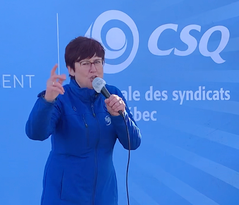 In response to
the strike action, the school service centres
(formerly French School Boards) and English
Montreal School Board filed
an application to the Administrative Labour Tribunal (TAT) challenging the legality of the
April 14 strike,
alleging it was abusive. They withdrew their
application the day before
the
strike and announced that teachers must be
present in schools at 9:31
am to conduct online learning. Parents were
informed the day before the
strike that online learning would be
administered. In response to
the strike action, the school service centres
(formerly French School Boards) and English
Montreal School Board filed
an application to the Administrative Labour Tribunal (TAT) challenging the legality of the
April 14 strike,
alleging it was abusive. They withdrew their
application the day before
the
strike and announced that teachers must be
present in schools at 9:31
am to conduct online learning. Parents were
informed the day before the
strike that online learning would be
administered.
Confusion among parents as to how to support
the teachers was
evident. It was not clear if the abrupt switch to online learning was an
initiative by teachers to
reduce the impact on a lost day of learning or a
pressure tactic by the
school boards against the strike action. Many
were discussing and
circulating articles on the morning of the
strike that stated that the
online
learning program was an anti-strike initiative
put in place at the last
minute by school boards. Some parents decided
not to have their child
attend the online learning program to support
the teachers.
The last minute shenanigans of the school
boards is unacceptable.
They knew for two weeks that the strike was
planned but they
demanded teachers be ready to give classes
online at a moment's notice.
Online learning is a tool to combat the
pandemic, not strike actions.
The pandemic is making it even more difficult
for information to be
transmitted. Mechanisms to support the teachers,
access information and
take action while respecting safety guidelines
is key.
A petition is being circulated called We Are
Drawing the Line to Redefine Education. Click here to sign
and share.
The teachers are waging a crucial battle for
the quality and integrity of public education.
All out to support this fight!
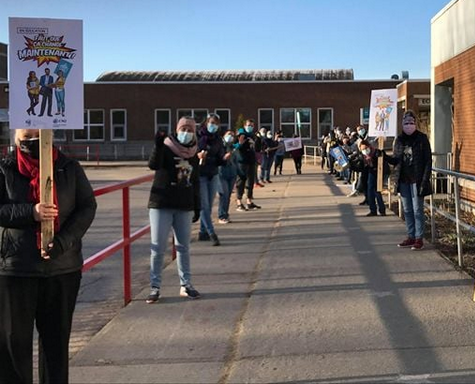 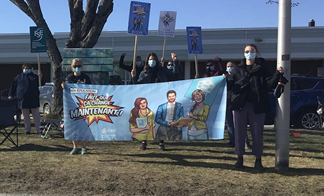

(To access articles
individually click on the black headline.)
PDF
PREVIOUS
ISSUES | HOME
Website: www.cpcml.ca
Email: office@cpcml.ca
|

